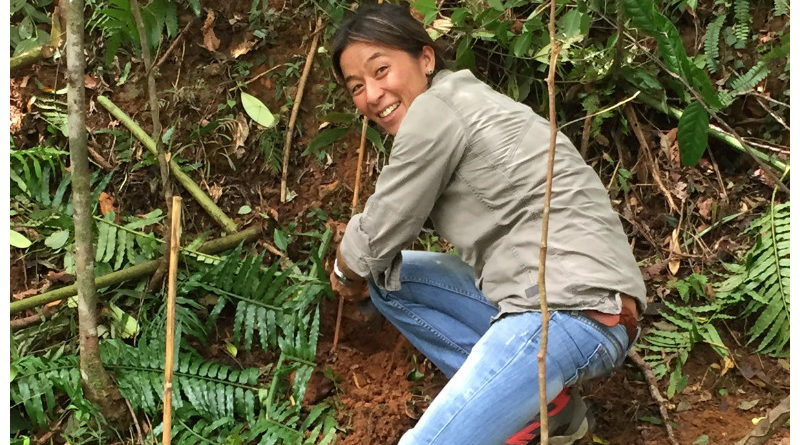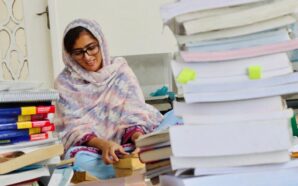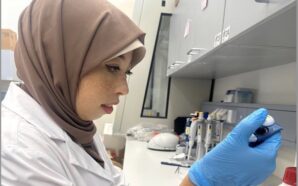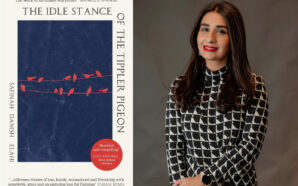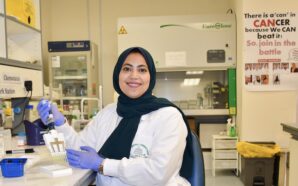We all know that growing up in a highly traditional society makes it tough for some women to “break the mold” so to speak, as social mores dictate that women be submissive and focus their attention on domestic matters over which they are expected to reign supreme.
But there are a fortunate few who actually succeed, growing up in an environment that is conducive to achievement, whether one is male or female, where one’s dreams, hopes and passions are nurtured and given the opportunity, care and attention required for such passions to take root, and for one’s hopes and dreams to be realized.
Such has been the life of Anne-Marie Bakker, hailing from a mix of Filipino and Dutch parentage, she is Director of Partnerships at a major Philippine NGO, Fostering Education & Environment for Development, The Philippines (FEED Inc.), which was founded in 2011 by Anne’s mother, Ophelia Bakker-Mananquil, through the Friends of Overseas Filipinos Incorporated (FOFI) established in 2001.
A graduate of the International School of Economics in Rotterdam, The Netherlands with BA Honors in Commercial Economics in 1998, and having earned her MSc in Business & International Finance at the EDHEC Business School (Grande Ecôle Lille) in Nice, France in 2004, Anne is a truly remarkable personality who, in her own words “does not take kindly to instructions from others.”
How would you describe your family and personal background?
My mother Ophelia comes from a farming family in Tarlac, Tarlac, while my father, Jacob van Vliet Bakker is from the Netherlands, from a long-time fishing family. They met in the Philippines while working in the same company in the 1960s, and they have been inseparable since. They raised us in both cultures (Filipino and Dutch) to make sure we honored our origins. They loved to travel and made sure we had the best access to knowledge, so we made our own choices of what to take up, as long as we studied. They are the reason I ended up focusing on projects from “ridge to reef”, that is, from the mountains to the sea. They epitomize true love in as much as that is possible in today’s maddening world.
Describe the career path you took after finishing your education.
I started working straightaway during college as that was the way in the Netherlands, and Europe in general. My cousins were working greenhouses since their teens; I was fascinated by them and found it to be a very practical way of easing into the market. Any job was possible at that time in the Netherlands, so I waited tables and worked the golf course during weekends. Doing so helped me gain access into very pricey courses Euro-railing, so I figured, why not. My approach even back then was very organic. My aim was to naturally try different segments, jobs and places. So if you look at my career path or journey, from Indonesia, to the Philippines, to the Netherlands, Europe, the Middle East and Africa, including Luxembourg and Qatar, after those moves, I was ready to build my own – something I had always wanted to do, as I do not take kindly to instructions from others.
But before I started on my own, I got the best sales and operations training from my own parents, especially from dad, setting up his back office admin, banking, trade financing and sales contracting at a global commodity trading company he set up, and on one we put up together in Singapore in 1997 (Camtek) and in 2010 (JB Global Resources).
From my mom, I got some training during weekends (and any free time) supporting her NGO (FEED) in the Philippines. It was certainly the best training ground for learning how to get things done on issues one cares for, loves or just wants to do.
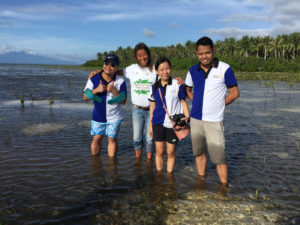 Tell us something about FEED.org.ph
Tell us something about FEED.org.ph
FEED is based in and focused on work in the Philippines where I spend half my time, while working as Head of WEnergy Global, a renewable energy solutions provider also based in Singapore. FEED is a non-stock, non-profit, non-governmental organization registered with the Philippine Securities & Exchange Commission.
We support sustainable education and tree planting, aiming to inclusively grow, preserve and protect Philippine biodiversity, both marine and terrestrial flora, through integrated social forestry programs, community development initiatives, and scientific and practical research into agricultural, environmental, farming, forestry and fisheries studies.
How was FEED conceived?
FEED Inc., established in 2011, was the evolutionary result of Friends of Overseas Filipinos Incorporated (FOFI). Due to the significant improvement in the social, political and economic infrastructure supporting Overseas Filipino Workers (OFWs), FOFI began shifting its focus towards education and the environment, sectors that required more support from the country. FEED’s efforts in terms of education were always focused on the youth.
 What were the initial hiccups encountered?
What were the initial hiccups encountered?
Generating interest and, more importantly, inciting people into action were the biggest challenges, on top of private sector and government hurdles. To date, this remains a challenge but we have set our sights and reached out to individuals and organizations who have a heart and who have similar objectives, because having to fight or convert people requires too much energy lost in unnecessary distractions. We always move where it is feasible; the size of the organization or influence of the individual is secondary – what matters to us is commitment and sincerity.
Currently, although a number of us are hard at work towards the nexus (water-food-energy security), issues involving trust, commitment and sincere effort remain. In any field or endeavor, finding people who can actually commit and make an effort and translate their commitment into action is difficult. But among those of us who do, we know we can actually cover a lot as we continue to align ourselves better instead of obstinately believing that each one’s way is the only way.
Mention some of FEED’s top achievements.
Aside from the many accomplishments of our respective board members and advisors, our President (my mother) recently won the “2016 Top 100 Filipina Women in the World” award.
For those who wish to see what FEED has done through the years, https://feed.org.ph/csr/ would be a great place to start.
We aim to be sustainable and help the most marginalized and leading agents achieve water, food and energy security through partnerships.
How do you get local communities engaged in your projects / programs?
By being with them whenever possible; otherwise, we are near them always, asking them what they really need, then working with others who recognize that need, and then working together to achieve the same goals (for us, it remains the nexus).
Your message to struggling NGOs and NGO workers.
Be authentic – your love, faith and persistence, perseverance matter. For those whose path is on sustainability, keep at it because no one else will.
Passion matters; it always does.
For me, that predicates knowing yourself and what you want, and also perhaps what your purpose is here (I remind myself often). Knowing this keeps me from just surfing and pursuing my own interests, I feel much more fulfilled serving others.




